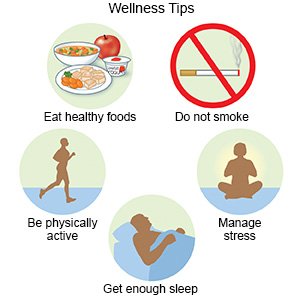Social Anxiety Disorder
Medically reviewed by Drugs.com. Last updated on Aug 4, 2025.
Social anxiety disorder causes you to worry or be nervous in social situations. Examples include meeting new people or going to a party or on a date. Social anxiety disorder can cause problems with work, school, or other daily activities.
DISCHARGE INSTRUCTIONS:
Call your local emergency number (911 in the US) if:
- You have chest pain, tightness, or heaviness that may spread to your shoulders, arms, jaw, neck, or back.
- You feel like hurting yourself or someone else.
Call your doctor or therapist if:
- Your symptoms get worse or do not get better with treatment.
- You have new symptoms since your last visit.
- You have questions or concerns about your condition or care.
Related medications
Medicines:
- Medicines help you feel more calm and relaxed, and decrease your symptoms.
- Take your medicine as directed. Contact your healthcare provider if you think your medicine is not helping or if you have side effects. Tell your provider if you are allergic to any medicine. Keep a list of the medicines, vitamins, and herbs you take. Include the amounts, and when and why you take them. Bring the list or the pill bottles to follow-up visits. Carry your medicine list with you in case of an emergency.
Treatment options
The following list of medications are related to or used in the treatment of this condition.
Manage anxiety:
- Talk to someone about your anxiety. Choose someone you know will be supportive and encouraging.
- Do activities you enjoy. Spend time with friends, or do something fun. Choose activities you are familiar with or comfortable doing. This may help prevent anxiety.
- Use deep breathing when you feel anxious. Deep breathing can help you relax and feel more focused. Take slow, deep breaths. Breathe in through your nose and out through your mouth. Deep breathing combined with meditation or listening to music may help you feel calmer.
- Get regular physical activity. Physical activity can lower your stress, improve your mood, and help you sleep better. Work with your healthcare provider to develop a plan that you enjoy.

- Create a regular sleep schedule. A routine can help you relax before bed. Listen to music, read, or do yoga. Try to go to bed and wake up at the same times each day. Sleep is important for emotional health.
- Do not smoke. Nicotine and other chemicals in cigarettes and cigars can increase anxiety. Ask your provider for information if you currently smoke and need help to quit. E-cigarettes and smokeless tobacco still contain nicotine. Talk to your provider before you use these products.
- Do not have caffeine. Caffeine can make your symptoms worse. Do not have foods or drinks that are meant to increase your energy level.
- Do not drink alcohol or use drugs. Alcohol and drugs can worsen anxiety or make it hard to manage. Talk to your therapist or provider if you need help to quit.
 |
Follow up with your doctor as directed:
Write down your questions so you remember to ask them during your visits.
© Copyright Merative 2025 Information is for End User's use only and may not be sold, redistributed or otherwise used for commercial purposes.
The above information is an educational aid only. It is not intended as medical advice for individual conditions or treatments. Talk to your doctor, nurse or pharmacist before following any medical regimen to see if it is safe and effective for you.
Learn more about Social Anxiety Disorder
Treatment options
Care guides
- Anxiety
- Anxiety in Adolescents
- Anxiety in Children
- Generalized Anxiety Disorder
- Relaxation and Meditation
- Social Anxiety Disorder
- Social Phobia in Children
Medicine.com guides (external)
Further information
Always consult your healthcare provider to ensure the information displayed on this page applies to your personal circumstances.
